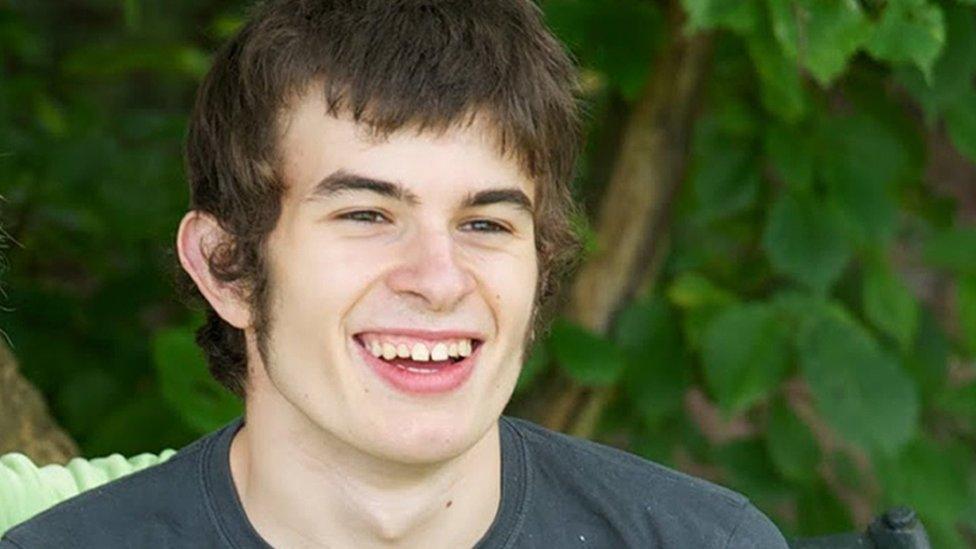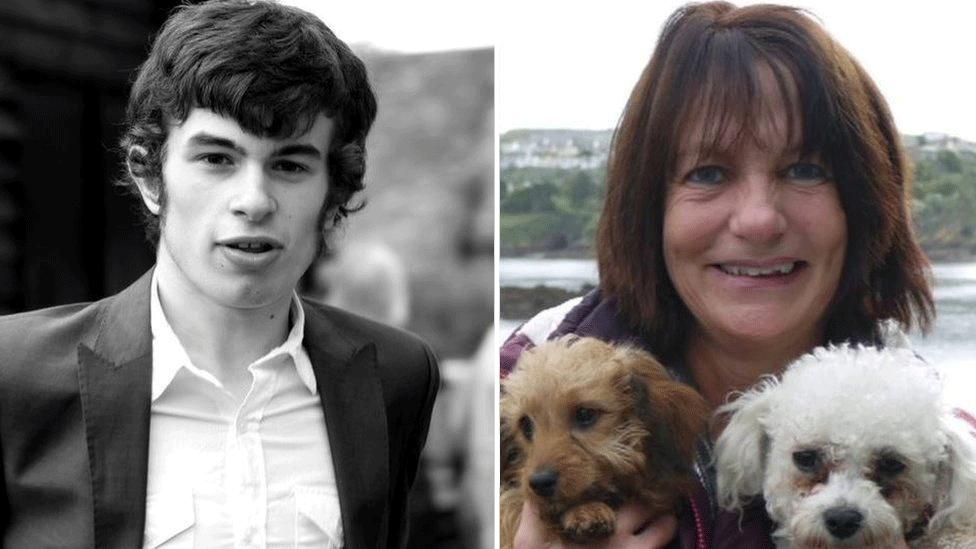Failings in learning disability deaths, report finds
- Published

Connor Sparrowhawk, who had learning disabilities and epilepsy, died in 2013 after being left alone in a bath
A review into the deaths of people with learning disabilities by NHS England has highlighted significant concerns surrounding their care.
Some 1,311 cases were passed for review between July 2016 and November 2017, with only 103 (8%) finished so far.
Of these, the Learning Disability Mortality Review, external found failings had taken place in one in eight deaths, from abuse to delays in treatment.
NHS England said £1.4m will be spent this year to complete more reviews.
It added that "early lessons" will inform the work of hospitals and community services.
The report comes in the wake of the death of Connor Sparrowhawk. Mr Sparrowhawk, who had learning disabilities and epilepsy, died when he had a seizure alone in a bath at an NHS care unit in 2013.
Southern Health NHS Foundation Trust admitted breaching health and safety law and was fined £2m for the deaths of Mr Sparrowhawk and another patient, 45-year-old Teresa Colvin who died in Hampshire in 2012.
'Things have actually got worse than they were ten years ago,' says Dr Sara Ryan
Speaking to BBC News following Friday's report, Mr Sparrowhawk's mother, Dr Sara Ryan, said the authorities were showing a "systematic disregard" for some people.
"Certain people simply don't count - you can't dress it up as anything else," she said.
"We have so much evidence now of a complete dismissal of the human-ness of people labelled with learning disabilities and... I don't actually want to live in a society in which this just goes on and the government does nothing about it."
In its annual report, the Learning Disability Mortality Review said there was a pressing "need for further action".
It said that in 13 of the 103 cases that had been reviewed, a patient's health had been "adversely affected" by factors including treatment delays, gaps in service provision, organisational dysfunction or neglect or abuse.
In one example, a man was admitted to hospital with possible urinary sepsis after he had been discharged. He had been sent home with a catheter by staff who did not have training in catheter care.
"The failure to liaise with carers about their knowledge and skills in catheter care contributed to an unsafe discharge, readmission and rapid decline in health," the report said.
In another example cited by the review, a man who had been under the care of a urologist until the age of 18, failed to receive follow-up care for the next eight years.
During this time, he developed a large kidney stone, which was ruled to be the main cause of his death.
The report also said there were instances of staff not being able to easily access records of a patient's specific needs.
One example given involved a person with learning disabilities who had anxiety about accessing services where there were stairs, resulting in missed appointments. Had this been recorded properly, the report said, reasonable adjustments could have been made.

Connor Sparrowhawk's mother, Dr Sara Ryan, said there was a "systematic disregard" for some people
The report made 189 recommendations in relation to the completed reviews, highlighting the need for better communication between different agencies, awareness of the needs of people with learning disabilities and understanding and application of the Mental Capacity Act.
Specific recommendations included:
The creation of a health passport if a person with learning disabilities does not already have one when admitted to hospital
The improvement of signage about waiting times in A&E departments
Quality review group meetings to address poor or unsafe discharges from hospital
GP practices to follow up the reason for non-attendance at annual health checks
The report said: "We have a responsibility to families and others to ensure that any learning points at individual level are taken forward into relevant service improvements as appropriate."
It added that some improvements had already been made, including changes in the discharge process and the provision of reasonable adjustments for people with learning disabilities.
Sir Stephen Bubb, who authored the report into the Winterbourne View abuse scandal, said the review highlighted ''endemic institutional abuse".
He said: ''The prime minister has said her mission is to tackle burning injustice. There can be no community more abused and neglected than people with learning disabilities and their families.
"How many more deaths before we tackle this injustice?''
The Department for Health said that every NHS Trust would have to publish data on avoidable deaths and provide evidence of improvements from June.
It said NHS England "must take up the recommendations of this review - and by learning from every avoidable death these tragedies should end in the future".
"Clearly there is still more work to do," it said.
The Learning Disability Mortality Review Programme is run by the University of Bristol and commissioned by the Healthcare Quality Improvement Partnership on behalf of NHS England.
An NHS England spokesperson said: "We welcome this interim report from the Learning Disabilities Mortality Review programme - the first of its kind in the world.
"These early lessons will feed into hospital and community services' work including early detection of symptoms of sepsis, pneumonia prevention, constipation and epilepsy, where there is significant progress.
"Another £1.4m more will be spent this year so that those responsible locally - as well as the University of Bristol and HQIP nationally - can ramp up the speed and number of their reviews over the coming year."
- Published26 March 2018

- Published28 September 2017
